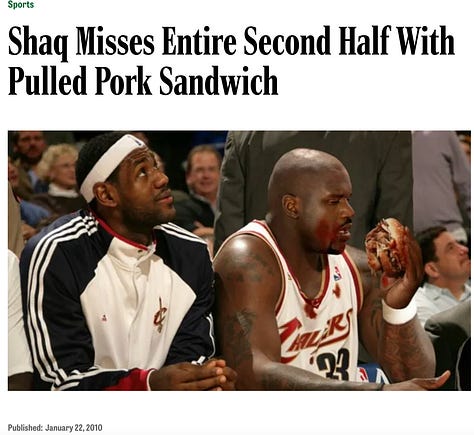Eight days after making the trade that shocked the world, Dallas Mavericks owner Patrick Dumont sat down with The Dallas Morning News to defend the decision to trade Luka Doncic to the Lakers. The mere fact that the normally press-averse Dumont gave such an interview should reveal just how bad the reception to that trade has been…
But some people are, I think, misinterpreting this interview as evidence that Dumont was the driving force behind the trade, as opposed to Mavericks GM Nico Harrison. Indeed, the Morning News even says as much in the article, quoting Doncic’s agent, who said, “It was done at the ownership level. We understand it’s business.”
Except it’s quite clear from the interview that Dumont doesn’t really know what he’s talking about, and was clearly deferring to Harrison in his reasoning. At one point Dumont even says, “In Nico we trust,” pointing to the trades he made at last year’s deadline as evidence of his basketball savvy. But the key quotes of the interview came later:
“In my mind the way teams win is by focus, by having the right character, by having the right culture, and having the right dedication to work as hard as possible to create a championship-winning outcome. And if you’re not doing that, you’re going to lose…If you look at the greats in the league, the people you and I grew up with — Jordan, Bird, Kobe, Shaq — they worked really hard, every day, with a singular focus to win. And if you don’t have that, it doesn’t work. And if you don’t have that, you shouldn’t be part of the Dallas Mavericks. That’s who we want. I’m unwavering on this. The entire organization knows this. This is how I operate outside of basketball. This is the only way to be competitive and win. If you want to take a vacation, don’t do it with us.”
This was obviously interpreted as an attack on Luka’s work ethic, especially in light of reports that the team was concerned about his conditioning and health. But it’s also just how people like that talk. Owners and CEOs and bosses love to throw around buzzwords and phrases like “championship-winning outcome” and “right culture” and “singular focus to win.” They love to talk about high standards and commitment and competitive drive. They love to say stuff like “I’m unwavering on this. This is how I operate outside of [work].”
And it’s just really important to not take any of this at face value. To not overanalyze or parse the literal meanings of these statements. Because it’s just bullshit, pure capitalist ideology. When someone like Patrick Dumont, who married into a billion-dollar gambling empire and has only ever worked for his in-laws since then, tells you, “If you want to take a vacation, don’t do it with us,” it is not actually evidence of an extreme work ethic. What he’s doing is performing the role of DEMANDING BOSS, which is how he can take credit for any success that the workers in his organization achieve.
One way that you know Dumont’s words are not about their literal meaning is that he cites, as an example of exemplary work ethic, Shaq – Shaq! Shaquille O’Neal, whose weight struggles throughout his career were legendary. Who famously played his way into shape nearly every season. Who, as The Onion once put it, would miss games with a pulled pork sandwich.



The only reason to use Shaq as your example there (besides extreme NBA ignorance) is that O’Neal won four NBA titles, and is therefore a symbol of success. In other words, the point is to suggest the highest of standards, even if the explanation of those standards is logically incoherent. That is why so many bosses — particularly bosses at the ownership level, who cannot easily be fired or replaced — talk this way. If they perform the role of DEMANDING BOSS, and the underlings perform well, then they can take credit: I set a really high standard here, and the employees rose to meet it. On the other hand, if it doesn’t work, then you can blame those underlings and fire them: Unfortunately, these people couldn’t meet our high standards, so they will be moving on.
Indeed, you can be sure, despite Dumont’s talk of “In Nico we trust,” that if this trade doesn’t work out — as it already seems to be not working out — that Dumont will fire Harrison within 15 months and talk about once again about how he wants a “championship-winning outcome.” But since you cannot fire the owner, he will remain. Indeed, the reason owners can get away with talking like this — with saying things that are just literally untrue, like that Shaq is an example of a player with a great work ethic — is that they are just not accountable to reality.
The takeaway from this interview is not that Dumont had strong feelings about Luka as a star. Personally, I came away from it more convinced than ever that Harrison was responsible for the trade. Dumont merely went along with it, and then mouthed meaningless platitudes to defend it because that’s all he really knows what to do.
I feel a little bad for Harrison. People around the league seem to like him, and that’s why they’re so desperate to find someone else to blame for this deal. It’s hard to believe such a smart basketball guy could make such a stupid trade. But, you know, sometimes great character doesn’t actually lead to a “championship-winning outcome.”



